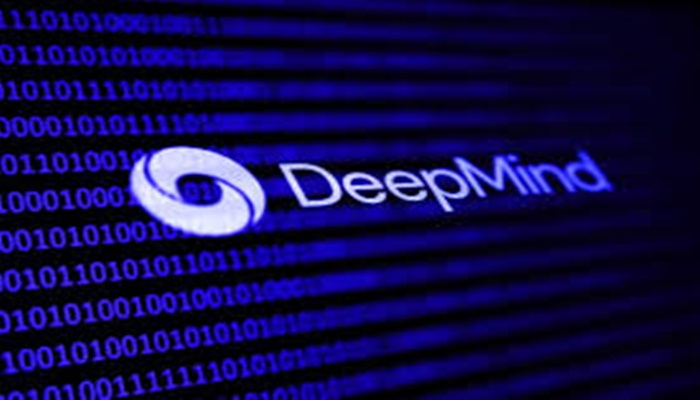The world of work is undergoing a seismic shift, a transformation so profound that it’s reshaping not just what we do, but how we live, learn, and contribute to society. Driven by the relentless march of Artificial Intelligence (AI), automation, digital connectivity, and evolving global dynamics, traditional career paths are bending, new roles are emerging, and the very definition of a “job” is expanding. This isn’t a distant phenomenon; we are living this evolution, witnessing the “Evolving Horizon of Work” unfold before our eyes. It presents both unprecedented challenges and remarkable opportunities, demanding a proactive approach to lifelong learning and a renewed focus on uniquely human capabilities to navigate the future.
The Shifting Sands: Drivers of Job Evolution
The forces propelling this transformation are multifaceted and interconnected, creating a dynamic labour market unlike any before. Automation and AI are acting as powerful accelerators, rapidly changing how we work, hire, and plan careers. While excelling at routine and repetitive tasks, making roles like data entry, basic accounting, and customer service ripe for automation, AI adoption is also expected to be a major job creator. In fact, 50% of surveyed organizations anticipate job growth from AI, versus 25% expecting losses. Forecasts even suggest that 2 million manufacturing workers could be displaced globally by 2025 due to AI, and up to 38% of data entry tasks could be automated by 2030. Even some entry-level white-collar jobs are affected, with predictions that half could vanish in the next five years.
Alongside this technological wave, the gig economy in India has expanded at a remarkable pace, driven by digital connectivity, urbanization, and a cultural shift towards flexible work. By FY 2024–25, the gig workforce numbered about 12 million, comprising over 2% of the total workforce. Projections indicate it could reach 23.5 million by 2029–30, potentially generating up to 90 million jobs long term. This sector formalizes much of India’s unorganized labour, providing income for many, yet it also presents challenges like income volatility and a lack of social security for a significant majority of gig workers. Furthermore, global shifts such as investments to drive the green transition and the broader application of Environmental, Social, and Governance (ESG) standards are creating demand for roles in renewable energy and environmental sustainability. These dynamics, coupled with demographic shifts and geopolitical tensions, continue to profoundly impact employment landscapes globally.
Beyond the Binary: Jobs Transforming, Not Just Disappearing
While the narrative often sensationalizes job destruction, the more accurate story is one of profound transformation and augmentation. The World Economic Forum (WEF) estimates that while 92 million jobs may disappear globally, a promising 170 million new roles could emerge by 2030. This indicates that jobs aren’t vanishing; they’re evolving.
AI and automation are not simply replacing humans; they are reshaping roles by taking over tedious, repetitive, and data-heavy tasks. This frees human workers to focus on higher-value activities that require uniquely human attributes. For instance, in healthcare, AI systems schedule appointments and transcribe patient interactions, allowing human professionals to dedicate more time to direct patient care and empathy. Similarly, in finance and law, AI can scan thousands of documents and detect fraud, augmenting the capabilities of analysts and legal experts. The demand for technology-related roles is exploding. Big Data Specialists, Fintech Engineers, AI and Machine Learning Specialists, and Software and Application Developers are among the fastest-growing occupations globally. In India, the demand for AI and big data specialists is projected to grow by over 60%.
The New Skill Currency: Navigating the Future Workforce
The changing nature of jobs necessitates a radical shift in the skills deemed valuable. Employers globally anticipate that 39% of workers’ core skills will change by 2030. The new skill currency emphasizes a blend of cognitive, socio-emotional, and technological competencies.
Cognitive skills are paramount, with analytical thinking topping the WEF’s skills list and considered essential by seven out of ten companies. Creative thinking is also gaining importance even faster than analytical thinking. Beyond these, critical thinking, problem-solving, and innovation remain crucial.
Crucially, socio-emotional skills, often referred to as soft skills, are increasingly vital because they “radically differentiate us from Artificial Intelligence”. These include resilience, flexibility, and agility, all essential for adapting to rapid change. The willingness to continuously learn, driven by curiosity and a commitment to lifelong learning, is now a core competency. Leadership and social influence, encompassing the ability to guide, motivate, and influence others effectively, are also highly valued. Furthermore, empathy and active listening are crucial for building relationships and effective collaboration in increasingly complex work environments.
Finally, technological fluency is no longer optional. While not everyone needs to be a coder, a basic understanding of digital tools, AI, data analysis, and cybersecurity is essential. Notably, workers with AI expertise saw a 56% wage increase in 2024, underscoring the direct value of these skills. The takeaway is clear: adaptability is the new employability. The future belongs to those who can harness AI and pivot towards strategy, creativity, and emotional intelligence—skills machines can’t replicate. Upskilling is now the new job security.
Pioneering Paths: India’s Adaptation and Innovation
India, with its vast young workforce and burgeoning digital economy, is at the forefront of this transformation, with significant efforts underway to prepare its talent for the evolving horizon of work.
The government-led Skill India Programme (SIP), continued and restructured with an outlay of Rs. 8,800 crore till 2026, aims to build a skilled, future-ready workforce. Flagship schemes like Pradhan Mantri Kaushal Vikas Yojana 4.0 (PMKVY 4.0) and FutureSkills PRIME specifically focus on imparting industry-aligned, technology-enabled training in emerging technologies such as AI, Big Data, Blockchain, and Cybersecurity to IT professionals, government officials, and students. This highlights a strong push to ensure educational curricula align with evolving labour market needs through joint programs, apprenticeships, and industry-backed certifications. Digital platforms for learning, such as the Skill India Digital Hub (SIDH), offer online courses and learning resources across various sectors, promoting continuous learning and skill agility. Additionally, India’s vibrant startup ecosystem serves as a hotbed for new-age job creation, particularly in tech, e-commerce, and green technologies, demanding innovative skill sets and agile professionals. These initiatives collectively underscore a national commitment to fostering a culture of lifelong learning and ensuring the workforce remains globally competitive and resilient.
The Horizon of Opportunity: A Human-Centric Future of Work
The evolving nature of jobs, while daunting, opens up a new horizon of opportunity for more meaningful and human-centric work. As AI takes over mundane tasks, it paves the way for roles that leverage our unique capacities for creativity, complex problem-solving, empathy, and strategic thinking. This future promises not just efficiency, but potentially greater fulfillment as work becomes less about repetitive tasks and more about leveraging our higher cognitive and emotional intelligence.
However, realizing this optimistic horizon requires navigating ethical considerations around AI implementation, ensuring inclusivity, and creating equitable opportunities for all. It demands a collaborative ecosystem involving employers, educators, policymakers, and individuals to ensure no one is left behind in this rapid transformation.
Charting the Course: Embracing the Unfolding Horizon
The journey into the future of work is dynamic and continuous. The “Evolving Horizon of Work” is not a fixed destination but a constantly shifting landscape that demands agility, curiosity, and a commitment to lifelong learning. By proactively adapting to technological advancements, cultivating essential human-centric skills, and embracing the opportunities presented by automation, India can not only prepare its workforce but also lead the way in shaping a more fulfilling, equitable, and human-powered world of work. The time to chart this course is now, ensuring that every individual is equipped to thrive on the unfolding horizon of tomorrow’s jobs.
Arhan Bagati is a youth leader from Kashmir and the founder of KYARI, a non-profit organization addressing critical issues in the region. He is also the Awareness and Impact Ambassador for the Paralympic Committee of India and is currently pursuing a Master in Public Policy at the John F. Kennedy School of Government at Harvard University. His commitment to social change was recently further acknowledged when Hindustan Times named him a 30 Under 30 – Social Impact Leader. Additionally, he has co-produced the movie Ground Zero.
Source – https://www.greaterkashmir.com/opinion/the-evolving-horizon-of-work/




















